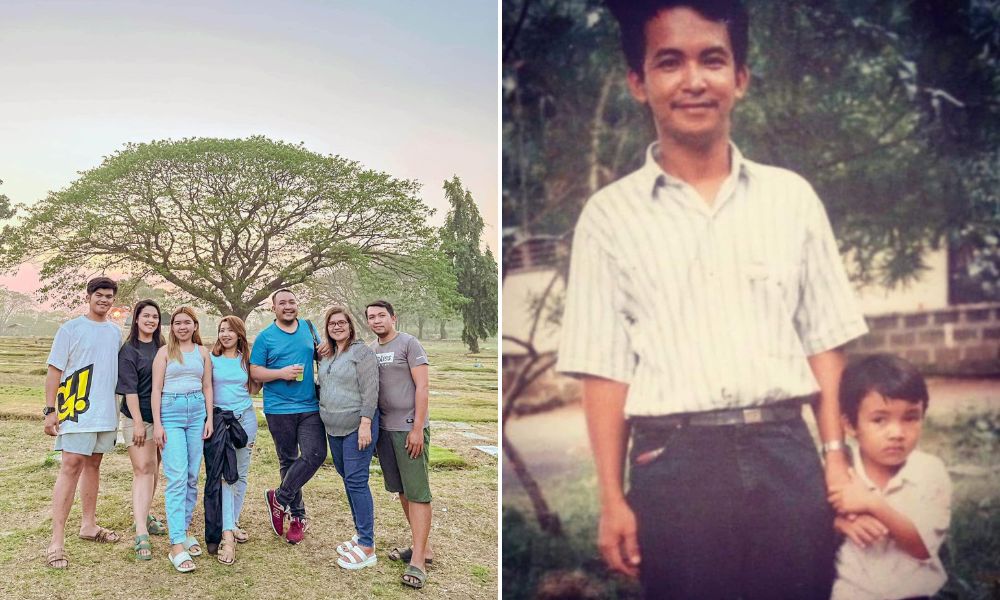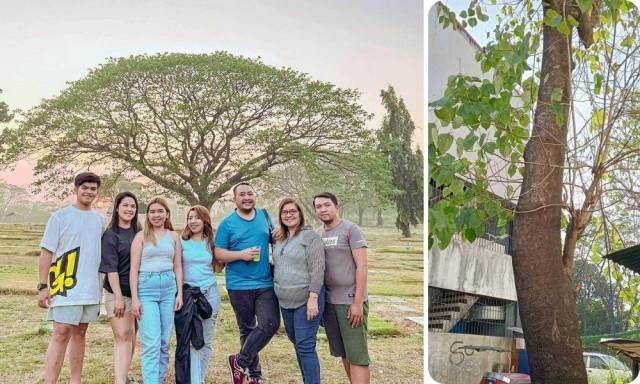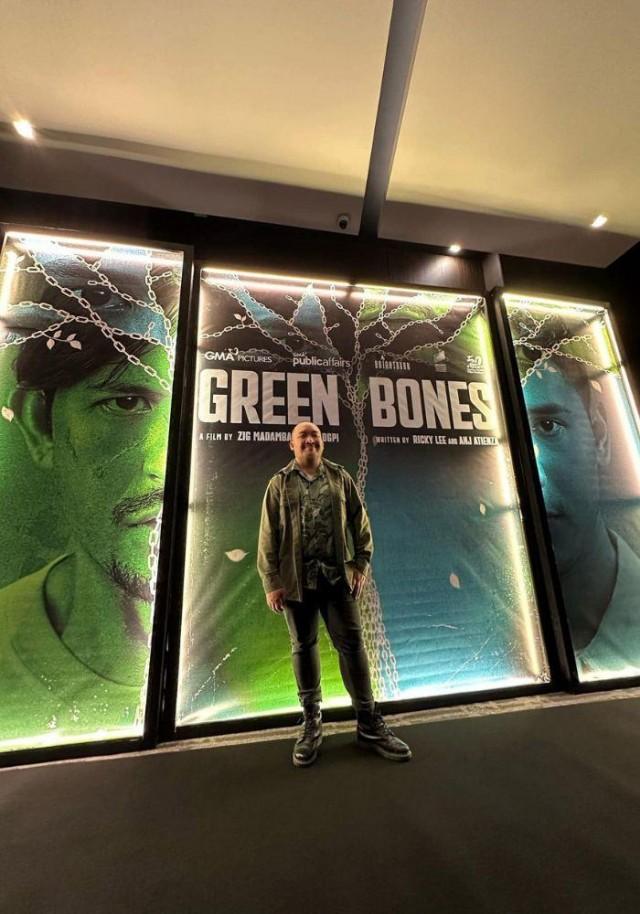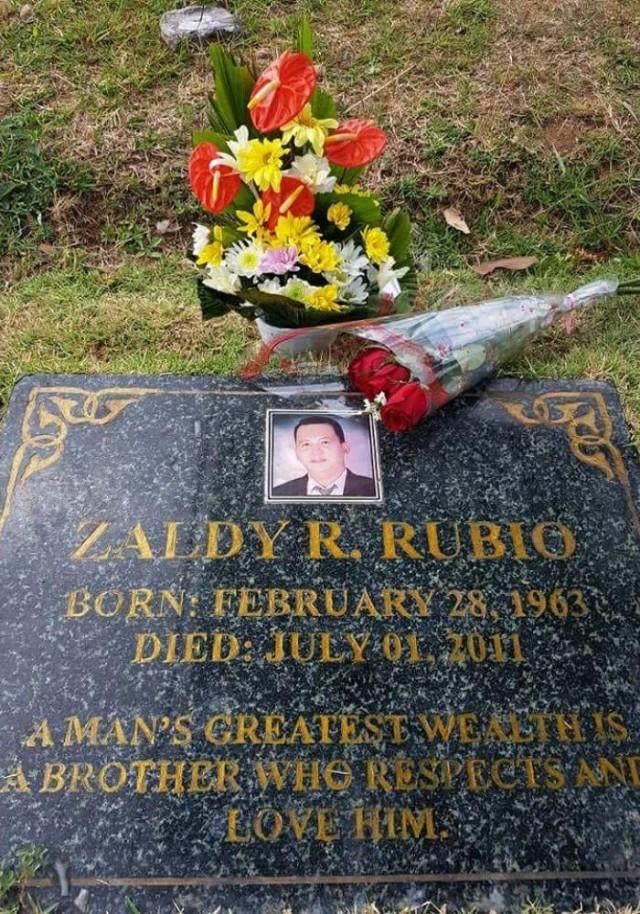
N
ot everyone knows that I was once the smallest student in grade school, yet in declamation and oratorical contests, I would stand tall on stage, representing Bagumbong, a remote barrio in North Caloocan.
My presence at competitions became so familiar that teachers from other schools would tell my coach, “Naku, kayo na naman ang mananalo.” (He is here to win again).
What they didn’t know was that behind my triumphs stood a secret hero — my late father, Zaldy Ramos Rubio.
My father was also a teacher. He penned my declamation pieces and patiently guided my practice. He instilled in me the importance of humility. He constantly reminded me that I was only as good as my last performance and that excellence required continuous hard work.
I grew up in a home witnessing my father’s kindness. Our small veranda became a haven for strangers seeking my father’s help. Whether transferring a student to our school and filling in birth and marriage certificates, he never turned away a plea.
I vividly remember him telling me, “Samahan mo ang pinsan mo” (Help your cousin) when my cousin needed to take a university entrance exam. “If you want to succeed, help others succeed,” he said. Today, my cousin is a police officer, serving his community — a testament to my father’s belief in empowering others.
As I reflect, I see how my father changed lives in profound ways. My father’s influence extended beyond our family and community. In his final years, he served as a lay minister, reading the gospel to bedridden neighbors, embodying the values of loving one’s neighbor and serving others.
My father’s humility was deeply rooted in his own beginnings. He worked as a baker to put himself through college. He supported my schooling by working a side job as a tricycle driver after his teaching shifts. He instilled in us a deep respect for others, regardless of social status.
Tragedy struck when he left us too soon at the age of 48, due to a stroke. I was just starting my career as a producer at GMA. As the eldest of six siblings, with three still in grade school, I was anxious about how I would support them.
But in the days that followed, I witnessed an overwhelming outpouring of love. Lines of people—former students, colleagues, and friends—gathered to honor him. They spoke highly of his kindness and wisdom. Even at his wake, the hospital and funeral staff remarked that they had never seen such a large gathering of people paying their respects.
I was overwhelmed with grief, but I found solace in the stories shared by those whose lives he had touched.
Green Bones
Years later, during a casual conversation with a friend and colleague whose grandmother just passed away that time, I learned about green bones. Her grandmother’s remains revealed nine green bones after cremation. Coincidentally, her grandmother had nine children, and my friend’s family believed that it was a testament of her goodness as a mother.
It made me wonder: if my father had been cremated, would his remains have revealed green bones? That question inspired the concept of the movie.
I pitched the concept to GMA Pictures. When Senior Assistant Vice President and MMFF 2023 Best Screenplay winner Anj Atienza read its first draft, she quickly saw its potential. Along with GMA Pictures producer Kristian Julao, we developed the story.
Eventually, it was greenlit by GMA Public Affairs head and GMA Pictures Executive Vice President Nessa Valdellon. Soon, we were at the doorstep of National Artist for Film and Broadcast Arts, Ricky Lee, who agreed to co-write the screenplay.
The result was a heartwarming script that earned its spot among the first five Metro Manila Film Festival Entries in July, with the handle, “Will there ever be green bones in what seems to be a hopeless place like a prison?”
My long years of producing documentaries for GMA Public Affairs like “Front Row” and “I-Witness” helped shape the movie’s authentic depiction of life, especially I had covered stories in jails as a producer.
At times, I get overwhelmed by the journey, but our brilliant director Zig Dulay offered perspective: “You did not find the story, the story found you.”
The Serendipity of the Hopeful Tree
BWhen I read the final script, I was surprised to see a “Tree of Hope” element, inspired by a real-life city jail where Persons Deprived of Liberty (PDLs) could hang their wishes — requests as simple as slippers, basketball shoes, reading glasses, or chocolates.
My father’s tomb is marked by a tree in the middle of the memorial park. Whenever we get lost finding his spot, we would say, “Doon sa may puno sa gitna.” (It’s near the tree in the center).
This felt serendipitous, as it reminded me of my father’s legacy. It felt like my father was finding a way to speak to me through the story.
I even pitched this perfectly shaped tree to be our movie location.
Another tree tells an interesting story about my father. He planted a tree years ago and told his fellow tricycle drivers to take care of it, telling them that it would one day provide shade.
While writing this article, after more than a decade, I asked someone to check if the tree was still standing. They sent me a beautiful photo—it thrives, a living testament to his kindness.
Kindness lives on
Before his burial, my father’s casket was brought to Rene Cayetano Elementary School for public viewing, where he last served as a school principal. Today, a school building named after him still stands.
The values my father instilled in me have carried me through life, helping me support my siblings, with my youngest sister graduating from college last year as our latest milestone—a family success my father would have treasured.
I recall my last visit to him in the ICU, where he proudly told the nurses that I worked at GMA. He stayed up late just to catch my name flash on TV for a few fleeting seconds. I know he would be prouder of the movie, a story we hope to reach audiences far and wide.
There were countless stories about my father—stories that felt almost like a movie. After his funeral, we discovered his diaries, filled with daily reflections of gratitude, and a Papemelroti quote calendar he updated every morning. The last quote he marked before his stroke read: “A man’s greatest wealth is a brother who respects and loves him.” We engraved those words on his tombstone.
Now at 40, I understand that my father’s life, however brief, was meaningful. We didn’t need to find green bones to prove his goodness—it lives on in the lives he touched, in the values he instilled, and in the legacy of kindness he left behind.
For all of us who loved him, we believe his spirit shines brighter than any color ever could.
JC Rubio is an award-winning senior program manager for I-Witness and Kara Docs, and a creative producer for GMA Pictures. He is the concept creator of Green Bones movie.
Green Bones is GMA Pictures’ official entry to the 50th Metro Manila Film Festival, in cinemas on December 25.
— LA, GMA Integrated News






